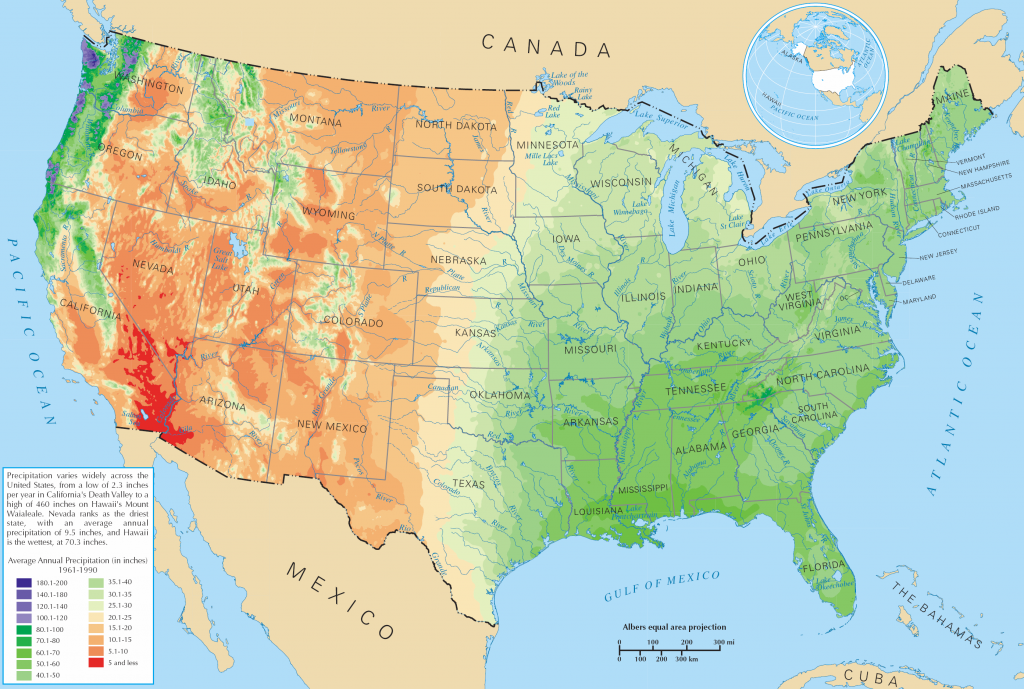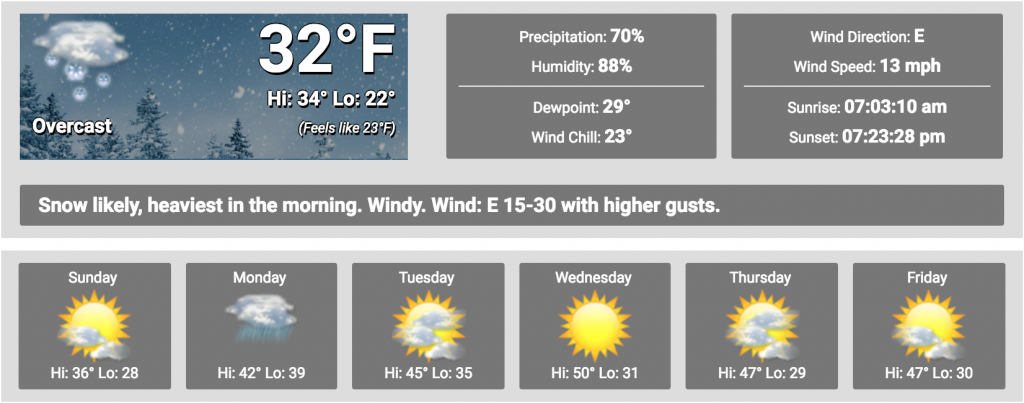Bundle 6: Climate
Tier 1, Part B: What’s the difference between weather and climate?
Tier 1: Part B: What’s the difference between weather and climate?
Objective:
Students use information from their interviews to learn about the differences between weather and climate. These are NOT interchangeable words. Understanding the difference is important for many reasons. Understanding climate versus weather comes into play in examples such as: (a) understanding weather reports, (b) interpreting data, (c) reading articles about changing climate; and (d) for asking good questions about the relationships between the building blocks of the climate system.
Overview:
Students should use information from their interviews and various sources to learn about the differences between weather and climate.
Big questions:
- What is the difference between weather and climate?
Standards addressed:
| MS-ESS2-4 | Develop a model to describe the cycling of water through Earth’s systems driven by energy from the sun and the force of gravity. |
| MS-ESS2-5 | Collect data to provide evidence for how the motions and complex interactions of air masses results in changes in weather conditions. |
| MS-ESS2-6 | Develop and use a model to describe how unequal heating and rotation of the Earth cause patterns of atmospheric and oceanic circulation that determine regional climates. |
| MS-ESS3-5 | Ask questions to clarify evidence of the factors that have caused the rise in global temperatures over the past century. |
Tier in depth:
Tier 1B – Weather vs. Climate
To be posed at the students: During the interview you’re conducting, you’ve been asking questions about things like temperatures in the summer and wintertime, number of downpours, and time spent shoveling the driveway, all things that you might associate with the weather. You’re also asking questions about the climate, and how it has changed. We might hear people use the terms weather and climate almost as if they were interchangeable, but do they really mean the same thing?
Weather:
When we turn on the radio, or local news we frequently hear someone giving us the weather report, similar to what you might see below. This might consist of a five-day forecast that tells you the temperature and, whether its going to be sunny or cloudy, or partly sunny, or partly cloudy (aren’t those the same thing?!). The weather is really a snapshot of how hot or cold, and how wet or dry things are going to be for you over the course of a fairly short time period, be it a few few hours or weeks, based on local atmospheric conditions. What are some reasons that you might be interested in knowing about the weather? Can you think of a situation where weather played an important role in your life?
Climate:
If we change our focus, and observe over a longer period of time, and over greater geographic areas, we begin to see how weather behaves on average. During the months of December through January, you can expect it to be cold and snowy if you live in the upper midwestern United States. But, on the other hand, it is often hot and humid during the late part of July and August. This average weather over many months, or even years of time, makes up what is meant by the the climate of a particular region. Why should we be interested in the differences between weather and climate? How would you describe the climate of your local area?

Here are a few resources that will help further clarify some of the differences between weather and climate:
Cosmos – https://www.youtube.com/watch?v=cBdxDFpDp_k
https://climate.nasa.gov/interactives/climate-time-machine
https://www.nasa.gov/mission_pages/noaa-n/climate/climate_weather.html
https://oceanservice.noaa.gov/facts/weather_climate.html
National Geographic – https://www.youtube.com/watch?v=zz_CRzcIT-Q
Crash Course – https://www.youtube.com/watch?v=YbAWny7FV3w
Once your students have reviewed the definitions and examples on climate and weather from the links above, or other resources, have students compare that the their interviews. How much of each particular interview was focused on weather, and how much was focused on climate? Are there specific events from the interviews or from student memories that can be compared to actual past weather data? These might be a good topic for discussion. Have students reflect on how their views and perceptions of climate, weather, and weather extremes change as they complete their interviews and move through the unit. Also have them keep note of the questions that come up along the way.
At this point in the unit, student investigations of weather variables (temperature, rainfall, humidity, soil moisture) can optionally be integrated into the unit. How do measurements taken over a few days or weeks compare to weather data from previous years? or to historical climate values which are usually long-term averages for specific months?
Do a Google search for Historical Weather Data and see what you’re able to come up with. How do your findings compare with what you were told during the interview?
Resources:
- Google search for “Historical Weather Data” will return tools
Additional Related Questions:
- Are all weather reports the same?
- How accurate are wather forecasts 24 hours in advance? 48 hours? 7 days?
Experts:
- National Weather Service: https://www.weather.gov/
- Your local office of the Weather Service
- TV meteorologists for your local stations.


